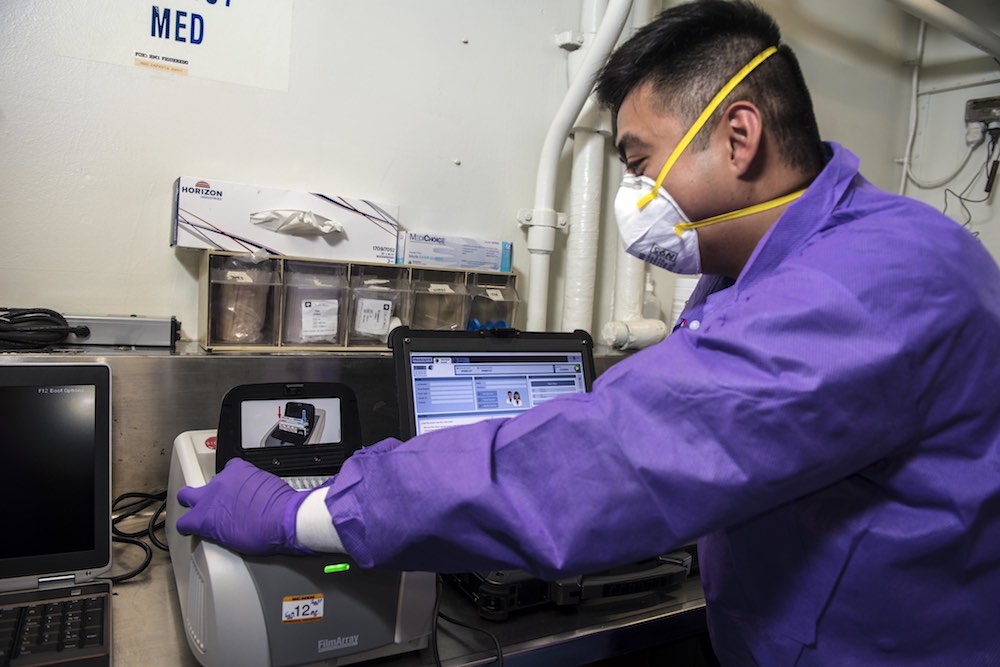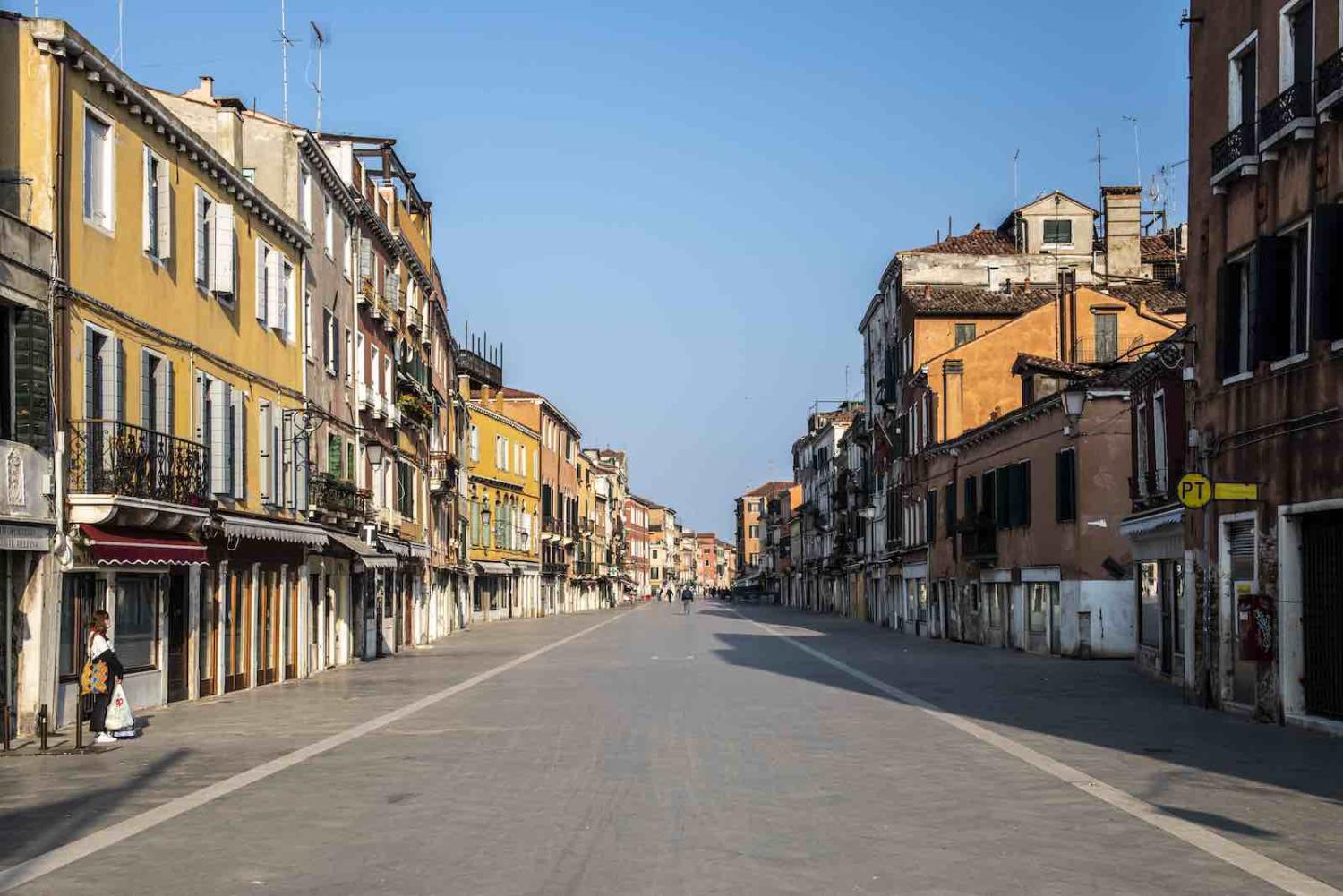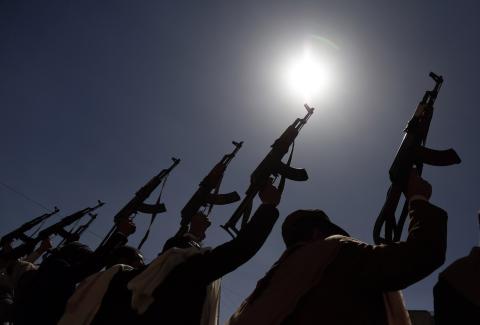A number of leading thinkers have expressed optimism about the political and social implications of the Covid-19 pandemic, predicting everything from a newfound civic nationalism to a renewed faith in technocratic expertise. But such optimism isn’t just unwarranted – it’s dangerous.
Covid-19 is a transnational threat that demands global collective action. No nation can defend against it alone. By the time governments arrest the virus’s spread, it will already have accelerated a number of “anarchical trends” – processes and political dynamics that render the world a Hobbesian mess. The complacency that accompanies such optimism makes a genuinely anarchical world even more likely.
Destabilising enemies
Iran and North Korea face a destabilising combination: mass casualties from Covid-19 converging with stringent economic sanctions and political leadership under strain. The Trump administration has spent years squeezing both regimes with “maximum pressure” in the name of deterring an Iranian nuclear breakout and compelling a North Korean nuclear reversal. In both cases, the approach has not just been fruitless, it has fuelled enmity and defiance.
Political leaders who find themselves dependent on China are happy to pretend that China’s private and club goods are somehow public goods, and that they live in a Sino-centric order, when in fact they exist in an interregnum before the new anarchy.
Enter Covid-19 into this scenario. The pandemic substantially amplifies maximum pressure in both cases, with an effect that even the most depraved sanctions regime would struggle to equal. Iran already accounts for close to 90% of infection cases in the Middle East, and its regime lacks the resources to mobilise an adequate response. North Korea’s border with China has already had to close, stifling crucial trade flows. And in the name of social distancing, Kim Jong-un will face greater pressure to crack down on the jangmadang (unofficially sanctioned black markets that keep North Korean society afloat).
Iran and North Korea are being pushed into precisely the corner that maximum pressure advocates believed would force unilateral disarmament – but there’s little evidence to conclude either country will simply acquiesce. To the contrary, desperate circumstances provoke desperate political moves, such as internal conflicts over power or a military gambit that leads to war. And that’s without the Trump administration taking the opportunity to inflict further harm, as recent reports suggest it has considered.
Economic decoupling
The tariff war Donald Trump launched against China in 2018 has since initiated a partial decoupling of two deeply interdependent economies. Covid-19 is pushing this great divergence further and faster than it might otherwise have gone. Part of the reason is opportunism. US Secretary of Commerce Wilbur Ross, for instance, mused that the pandemic “will help to accelerate the return of jobs to North America”.
But part of the rationale for accelerated decoupling is strategic. The Trump administration was already working to mitigate vulnerabilities in the US supply chain and critical infrastructure that China might exploit for coercive purposes. And with most pharmaceutical ingredients manufactured in China, the pandemic introduces a strategic vulnerability that inhibits US competitive freedom of action, which is why the Trump administration decided to diversify its drug supply chain away from China. Inducing restraints on competition was once the point of entwining economies, but in an anarchical world, the risks of interdependence cast doubts on its benefits.
On the other hand, some of the impetus for decoupling is frighteningly irrational. The Trump administration has variously branded the virus as the “China virus”, “Wuhan virus”, and “Kung Flu”. While maybe accurate in terms of geographic origins, such labelling adds to anti-Chinese (and anti-Asian) backlash in the US, and to suspicion that US China policy is motivated by a racist clash-of-civilizations logic.
The Chinese government has also stoked tension between the great powers. It not only actively promoted a conspiracy theory that the US Army created the virus, but also withdrew press credentials of reporters from major American newspapers covering the pandemic in China.

Racially tinged grievance and conspiracy theories have consequences. US Senator Tom Cotton hinted at the dark place events could go when he seemed to vow revenge against China in a statement claiming the US “will emerge stronger from this challenge, we will hold accountable those who inflicted it on the world, and we will prosper in the new day”.
Transitioning out of order
For years, China has chipped away at, and at times directly challenged, the US position as global hegemon it has enjoyed for the past several decades. And largely because Trump has taken the view that global leadership is for suckers, American might abroad has steadily atrophied.
China is seizing on the pandemic to further hasten the demise of US leadership by posturing as the world’s new public goods provider. According to the Alliance for Securing Democracy, more than 2900 social media messages from Chinese government and state media over the past week have promoted themselves as a partner of choice for European nations. Tweets from Chinese embassies across Europe have touted their government supplying masks, ventilators, test kits, and other medical equipment that Beijing has commandeered from its factories. And the propaganda campaign is working: the Italian government has lavished praise on China for its much-needed assistance, and Serbia’s president declared, “European solidarity does not actually exist. That was a fairy tale on paper. I believe in my brother and friend Xi Jinping, and I believe in Chinese help.”
In reality, China’s bid for its own hegemonic order has been far more aesthetic than substantive. Beijing’s initial coverup of the coronavirus epidemic and delayed response made the eventual pandemic much worse than it might have been. It hoarded breathing masks for weeks before “beneficently” distributing them. Most importantly, China has not established an adequate global architecture – liberal or otherwise – to support a new international order, and its own actions in recent years have undermined the existing one.
Now, however, political leaders who find themselves dependent on China are happy to pretend that China’s private and club goods are somehow public goods, and that they live in a Sino-centric order, when in fact they exist in an interregnum before the new anarchy.
Getting ahead of the curve
The pandemic is accelerating us toward a world where low trust doesn’t just impede cooperation but also fuels arms proliferation and military competition. The point of highlighting these grim intersectional risks is to understand what happens if we do nothing to change our fate, if we simply close borders, curb trade, and look after our own interests, rather than rely on alliances or institutions. What we’re getting from most governments is reactive blame-shifting and myopia, when what we need is foresight and collective action against a collective threat.

